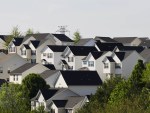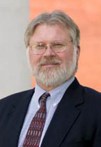 Kevin D. Walsh, Esq., associate director of the Fair Share Housing Center in Cherry Hill, New Jersey, and Douglas S. Massey, the Henry G. Bryant Professor of Sociology and Public Affairs at Princeton University’s Woodrow Wilson School of Public and International Affairs, will present the Bloustein School’s annual Isadore Candeub Memorial Lecture in Planning on Wednesday, November 13, 2013. This year’s lecture will be “Mount Laurel: In the Courts and in the Lives of People.”
Kevin D. Walsh, Esq., associate director of the Fair Share Housing Center in Cherry Hill, New Jersey, and Douglas S. Massey, the Henry G. Bryant Professor of Sociology and Public Affairs at Princeton University’s Woodrow Wilson School of Public and International Affairs, will present the Bloustein School’s annual Isadore Candeub Memorial Lecture in Planning on Wednesday, November 13, 2013. This year’s lecture will be “Mount Laurel: In the Courts and in the Lives of People.”
The lecture will focus on the Mount Laurel anti-exclusionary zoning decisions by the New Jersey Supreme Court and their consequences. These rulings have held that, under the New Jersey Constitution, municipalities that zoning have an affirmative obligation to provide realistic opportunities for low-and-moderate income housing. As a result, the New Jersey legislature established the Council on Affordable Housing to oversee the administration of the state’s affordable housing program.
Walsh will review the Mount Laurel doctrine and its constitutional rationale, and analyze a number of decisions made by the New Jersey Supreme Court and the state’s intermediate appeal courts this year regarding the Council on Affordable Housing (COAH) and the use of municipal housing trust fund monies. He will also talk about the recent decision by the New Jersey Supreme Court striking down COAH’s controversial “growth share” formula for determining municipal obligations for ensuring affordable housing is built over time. The associate director of the Fair Share Housing Center, in 2000 Walsh joined FSHC following a clerkship in the New Jersey Supreme Court. A graduate of The Catholic University of America and Rutgers University School of Law in Camden, he is responsible for the administration of FSHC and focuses his practice on regulatory challenges and litigation involving high-growth municipalities. He has also had major success in getting affordable housing included in key transit-oriented development plans. Walsh received the Mary Philbrook Award from Rutgers School of Law-Camden in October 2012 and was named Lawyer of the Year in December 2012 by the New Jersey Law Journal.
Massey will discuss the findings of Climbing Mount Laurel(Princeton University Press, 2013), which he co-authored. It is the first empirical mixed-methods study regarding Mount Laurel housing, analyzing the impact of the Ethel Lawrence Homes, a low-and-moderate income housing project in Mount Laurel Township, on the lives of its residents and on Mount Laurel itself, and its surrounding townships. He will draw conclusions from the findings for planning and public policy and the construction and management of affordable housing. Massey served on the faculties of the University of Chicago and the University of Pennsylvania before coming to Princeton in 2003. During 1979 and 1980 he undertook postdoctoral research at the University of California at Berkeley and Princeton University, where he received his Ph.D. in 1978. Massey is a member of the National Academy of Sciences and the American Academy of Arts and Sciences, and the American Philosophical Society. He is past president of the Population Association of America and the American Sociological Association and current president of the American Academy of Political and Social Science and a member of the Council of the National Academy of Sciences.
The event will begin at 5:00 p.m. and will be held in the Special Events Forum, Civic Square Building, 33 Livingston Avenue, New Brunswick, NJ on the campus of Rutgers University. A reception will follow the lecture. Click here for a map with directions. RSVP is requested by Tuesday, November 5 by visiting http://bit.ly/candeub13. This event has been submitted for 1.5 American Institute of Certified Planners (AICP) Certification Maintenance credits.
The annual Isadore Candeub Memorial Lecture in Planning was established in the memory of Isadore Candeub in tribute to his long and successful career as a planning consultant and to his extraordinary dedication to planning in towns, cities and regions across America. Before his passing in 1986 he was chairman of the executive committee of Candeub, Fleissig & Associates, consultants in community development and environmental planning. Mr. Candeub, with Morris B. Fleissig, a lawyer, founded the firm in Newark in 1953. Earlier he had spent 20 months in the Federal Government as chief planner for the Northeastern region of the Housing and Home Finance Agency, precursor of the Department of Housing and Urban Development. He was a 1943 graduate of the City College of New York; did graduate work at Columbia University and received a master’s degree in 1948 from the School of Architecture and City Planning of the Massachusetts Institute of Technology.


